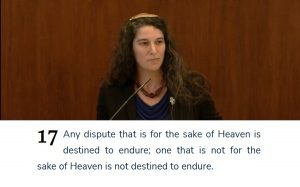Carbon tax could support transition for coal-reliant communities
3 min read
DJ Suss D: After I listened to what Bill McKibben, founder of 350.org said during a recent DivestOregon.org conference about Joe Manchin but before the announcement of the potential agreement on the Inflation Reduction Act, I emailed the local Citizens’ Climate Lobby chapter and asked if a carbon tax could have provisions to retire and retrain coal workers in West Virginia. Here’s what Bill McKibben said about the Senator from West Virginia with the ironic name.
[00:00:29] Bill McKibben: I just wrote a long piece for the New Yorker, called ‘In a world on fire, stop burning things,’ pointing out that the rapid drop in the price of renewable energy over the last decade means that we can essentially end large-scale combustion on this planet and do it in short order.
[00:00:47] The only reason we’re not making huge steps in that direction every day, the only reason we’re not engaged in an all-out effort to do it is the power of the fossil fuel industry. That’s the reason, for instance, that President Biden has been unable to pass his Build Back Better bill, the first serious climate legislation Congress has ever come close to passing.
[00:01:10] The vote that prevents it from passing belongs to Sen. Manchin, who has taken more money from the fossil fuel industry than any other player in Washington, not an easy contest to win, but he won it, and that’s been—the return on the investment has been staggering because he alone has held up huge amounts of money that we need for this renewable energy transition.
[00:01:32] So if you’re invested in ExxonMobil, you’re invested in Joe Manchin. I mean, that’s where some of that money’s going and that’s what they do. They said there was hidden camera tape last year of Exxon’s chief lobbyist explaining that Joe Manchin was, as he put it, ‘Our kingmaker,’ and that they met with him every week.
[00:01:54] Well, that’s what if—if you’re a shareholder in ExxonMobil, you’re part of that, and and trying to profit from it and trying to profit from, essentially, the end of the world.
[00:02:08] DJ Suss D: Here’s the reply from Citizens’ Climate Lobby headquarters.
[00:02:13] ‘The risk of fiscal collapse in coal reliant communities,’ a Columbia Brookings 2019 report, offers a detailed look at the fiscal issues. It concludes in part, ‘A new source of government revenue may be required to push a serious economic development program across the finish line. And a logical source of these funds would be a federal carbon price. A carbon price could provide hundreds of billions of dollars in new annual federal government revenues, a small fraction of which could be devoted to economic development in coal communities and direct assistance to the residents of these communities.
[00:02:47] A good example of this policy proposal in action is the Whitehouse-Schatz Save Our Future Act from 2021. It would impose the carbon taxes on fossil fuels and other sources of greenhouse gas emissions raising more than $2.4 trillion over 10 years. The legislation would invest roughly $120 billion over that period in economic development, infrastructure, environmental remediation assistance to local and tribal governments and wage replacement, health, retirement, and educational benefits for coal industry workers who lose their jobs.
[00:03:21] The bill earns support from the Utility Workers Union of America, the American Sustainable Business Council, the New York Environmental Justice Alliance, New York Lawyers for Public Interest, The Nature Conservancy, the National Wildlife Federation, and The Environmental Defense Fund.
[00:03:35] For KEPW Weekly News, I’m DJ Suss D.




